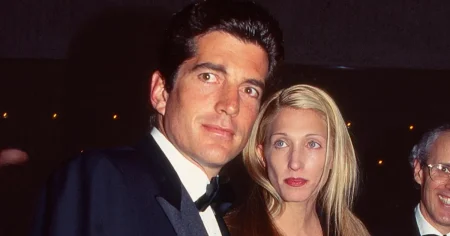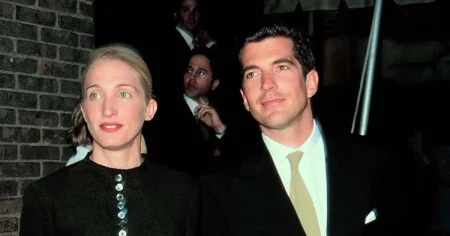Unexpected Gems: Three Overlooked Films on HBO Max Worth Your Time
While HBO Max frequently makes headlines for hosting blockbuster releases like “Weapons” and “Materialists,” the streaming platform harbors numerous hidden treasures that deserve recognition. Beyond the heavily marketed titles lies a collection of films that may have slipped under your radar but offer compelling viewing experiences nonetheless. This weekend, consider veering off the beaten path to discover three underappreciated movies available on HBO Max that showcase diverse storytelling, memorable performances, and unique artistic visions that might otherwise go unnoticed in the deluge of new content.
Tom Hanks delivers one of his most nuanced performances in “A Man Called Otto” (2022), a poignant drama about grief, connection, and second chances. The film follows Otto Anderson, a 63-year-old widower whose forced retirement and lingering grief over his wife’s death have left him contemplating suicide. His life takes an unexpected turn when a lively family moves in next door. Marisol and Tommy, his new neighbors, gradually pierce Otto’s hardened exterior, helping him reconnect with positive memories of his marriage and discover purpose in his continued existence. What makes this film extraordinary is how it navigates the delicate balance between depicting serious themes of depression and the heartwarming story of a curmudgeon’s redemption. Hanks masterfully portrays Otto without seeking easy sympathy, instead allowing viewers to gradually understand the good man beneath the gruff facade. His performance reveals why Otto’s wife loved him despite his difficult personality, showing both his worst tendencies and his capacity for genuine kindness. The film succeeds precisely because it doesn’t shy away from difficult emotions while still offering a message of hope and human connection that feels earned rather than manipulative.
History gets a fantastical reimagining in “Abraham Lincoln: Vampire Hunter” (2012), a genre-bending film that combines American historical events with supernatural horror elements to create an unexpectedly entertaining experience. Benjamin Walker stars as the 16th president, portraying Lincoln’s journey from idealistic lawyer to skilled vampire slayer. Under the mentorship of the enigmatic Henry Sturges (Dominic Cooper), Lincoln battles Adam (Rufus Sewell), a powerful vampire using the slave trade to build an undead army. What sounds like a completely absurd premise actually maintains surprising fidelity to Lincoln’s biographical timeline and major historical events—with vampires seamlessly woven into the narrative. The film creatively reinterprets the Civil War by suggesting Confederate President Jefferson Davis recruited vampires to fight for the Southern cause, transforming American history into an over-the-top supernatural battle. Despite its outlandish concept, the film delivers stylish action sequences and maintains an awareness of its own ridiculousness that makes it consistently entertaining. For viewers open to an irreverent approach to historical figures and events, this unique blend of period drama and horror provides a fresh perspective on familiar American narratives.
For those craving visual spectacle and unbridled imagination, Zack Snyder’s “Sucker Punch” (2011) delivers a kaleidoscopic feast for the senses that defies easy categorization. The film centers on Babydoll (Emily Browning), a young woman wrongfully committed to a mental institution by her greedy stepfather, who aims to have her lobotomized to claim her inheritance. To cope with her grim reality, Babydoll creates increasingly elaborate fantasy worlds—first reimagining the asylum as a brothel where she and fellow patients are captives, then escaping into action-packed dreamscapes when she dances. As Babydoll and four other women plan their escape, they must complete a scavenger hunt for essential items, leading to fantastical sequences ranging from battles with giant samurai to confrontations with dragons and orcs. While critics were divided on the film upon release, “Sucker Punch” represents Snyder’s distinctive visual style at its most uninhibited. The movie jumps between wildly different settings and aesthetics with abandon, utilizing Snyder’s signature slow-motion action sequences to create memorable set pieces. Behind its frenetic energy lies an attempt to explore themes of female empowerment and mental escape, even if the execution sometimes muddies these messages. For viewers willing to embrace its chaotic nature, “Sucker Punch” offers a uniquely immersive experience that showcases Snyder’s commitment to visual storytelling and action choreography.
While streaming platforms continuously update their libraries with fresh content, these three films demonstrate the value of exploring beyond the latest releases. “A Man Called Otto” proves that character-driven dramas can still deliver profound emotional experiences when anchored by exceptional performances. Hanks reminds us why he remains one of cinema’s most trusted actors, capable of finding humanity in even the most difficult characters. Meanwhile, “Abraham Lincoln: Vampire Hunter” exemplifies how genre mashups can breathe new life into historical narratives, creating entertaining experiences that might even spark interest in the actual historical figures depicted. Finally, “Sucker Punch” represents the kind of bold, divisive filmmaking that deserves reconsideration, offering visual innovation and ambitious storytelling that continues to find new audiences years after its initial release.
Each of these films represents a different approach to filmmaking—from intimate character studies to historical reimaginings and fantasy spectacles—demonstrating the diversity of content available on streaming platforms beyond heavily marketed new releases. “A Man Called Otto” reminds us of cinema’s power to explore complex human emotions through compelling characters. “Abraham Lincoln: Vampire Hunter” showcases how genre experimentation can produce surprisingly entertaining results when executed with commitment to its outlandish premise. “Sucker Punch” stands as a testament to visual innovation and creative risk-taking, even when the end result divides audiences. These films may not have received the attention they deserved during their initial releases, but they each offer unique viewing experiences worthy of discovery or reconsideration.
As streaming services continue to compete for subscribers with original content and high-profile acquisitions, it becomes increasingly important for viewers to look beyond trending titles and algorithmic recommendations. HBO Max, like other major platforms, contains countless overlooked films that represent diverse voices, innovative storytelling approaches, and memorable performances. By seeking out these hidden gems, viewers can discover new favorites, appreciate different filmmaking styles, and develop a more comprehensive understanding of cinema’s rich tapestry. Whether you’re drawn to emotional dramas like “A Man Called Otto,” genre hybrids like “Abraham Lincoln: Vampire Hunter,” or visual extravaganzas like “Sucker Punch,” HBO Max offers something to satisfy virtually any cinematic appetite—if you’re willing to explore beyond the homepage highlights.














